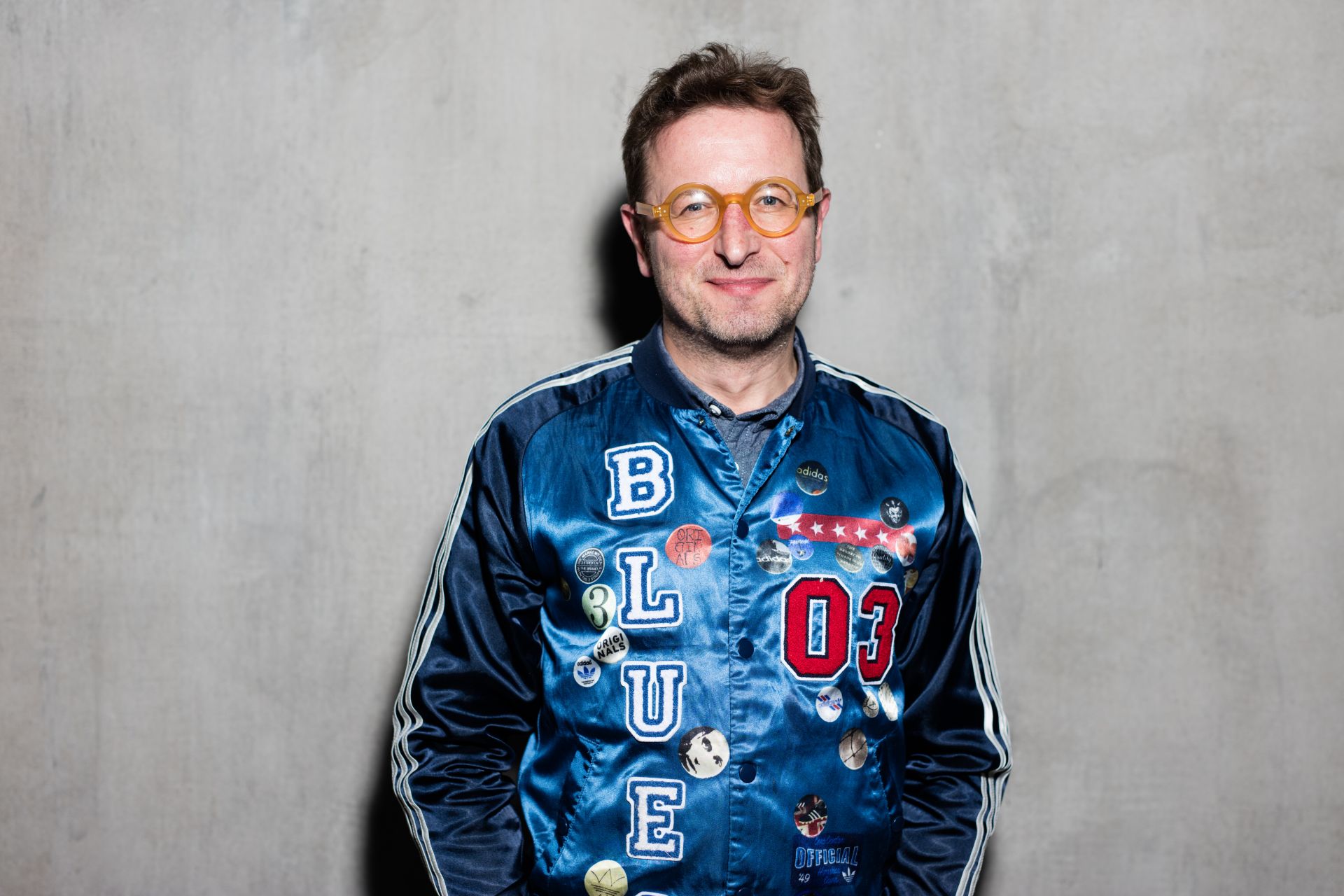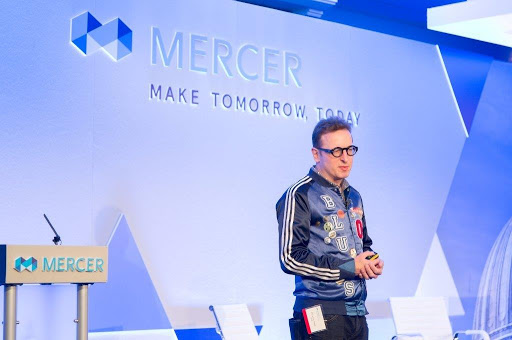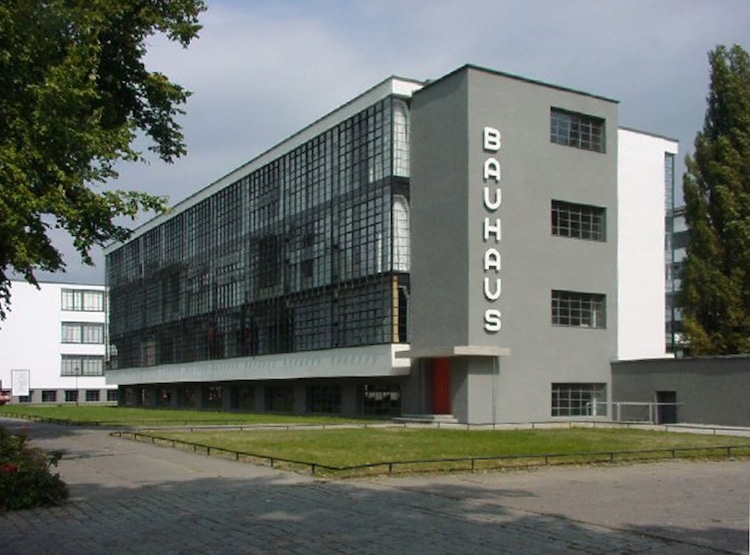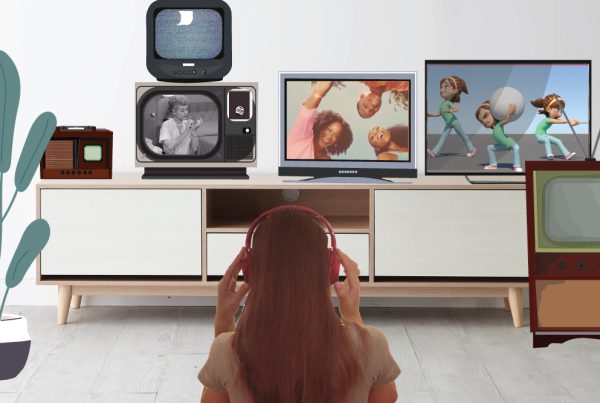Christian Kuhna is an insatiable mind who has had an extensive experience in strategy, education and learning, creativity, and innovation. As founder and CEO of Urban Society Design Consultancy (USDC) in Shanghai, China, he is on a mission to change societies through human-centric design, Design Thinking / Service Design and Speculative Design.
Nil Postius Echeverri (NP) of the Nagaoka Review speaks with Christian Kuhna to get his thoughts on the future of work, digital transformation, and a counter trend called the ‘renaissance of humanism‘.
Christian Kuhna, Founder and CEO of Urban Society Design Consultancy (USDC)
NP: What is the crucial part when we talk about digital transformation (DX)?
CK: I really do not focus on technology. I mean, I know about technology, and I try to be in front of the latest trends. I have a chip in my hand, an RFID implant. So, really, I try to embrace technology.
Digital transformation is more of a mindset, a culture that you build in an organization, and leadership that drives this organizational change. Technology is normally not a problem. The technology is there. You can learn that. You can also bring in experts for that.
But the success or failure of any digital transformation initiative rests on how employees embrace it and how leaders will drive this change.
NP: Talk to us about your latest adventure: USDC or Urban Society Design Consultancy. How do you advise clients about technology and people?
CK: There are a lot of business consultancies, of course, and I provide strategy consulting, and leadership development for big companies with an interdisciplinary approach. And specifically, I use design thinking as a methodology.
In the classes that I teach at Alibaba, in the conferences or universities that I get to be invited as a speaker, I talk about topics like the future of work, the future of organizations, the future of retail, the future of space, and so on. And in almost all cases, everything has to be seen with the impact on humans and the impact on society.
How does technology change us, humans? How does technology change companies? How does the virus change companies? And what is the long-term impact on humans and society?
A recognized keynote speaker and thought leader, Christian talks about topics like the future of work, the future of organizations, the future of retail, the future of space, and more. Photo credit: Mercer
So, I try to ask these questions and bring in different facets. And that is why I also try to work with very diverse people. And this is what we are trying to do now at USDC.
USDC led me to an idea that I had for a long time and the dream is for me to establish a new Bauhaus in China.
The Renaissance of Humanism
NP: You are involved in many other projects such as ‘The Renaissance of Humanism’, briefly tell us what this is about.
CK: Essentially, the concept highlights the need to embrace and shape a more human-centric future given the rate on how we use technology and how technology transforms and changes our lives.
NP: Why is Bauhaus an important concept on the Renaissance of Humanism?
CK: Bauhaus is a German university that was founded 100 years ago. And I think it’s the most influential university ever built. It only existed from 1919 to 1923 and 1933. But it had the most significant influence on all design, culture, art and architecture because it was the first approach that was multidisciplinary. It combined art design, architecture, craftsmanship, and technology, and had the theatre with Oskar Schlemmer in the center. The theatre brings all these elements together as a catalytic element.
I think now is the time to restart this Bauhaus idea, to think broader, think multidisciplinary, think interdisciplinary, bring all the disciplines together.
Bauhaus Dessau, a UNESCO World Heritage Site, located in Weimar, Germany. Photo credit: Mewes via Wikipedia Commons
And this brings me to my core topic, this renaissance of humanism.
With the progressing digitalization of everything, which is unstoppable, and which is not necessarily bad, every job in the future will have to be creative and human-centered, otherwise it will be done by algorithms, robots or AI.
”The more digital we get, the more human values are essential, and the more we need to ask questions why we use technology, for what do we use technology for, and how can technology help us become better humans?
Christian KuhnaFounder and CEO of Urban Society Design Consultancy (USDC)
It’s all about purpose. Is it about purposeful societal change? How can technologies, for example, help people become healthier? How can technology raise people out of poverty? How can technology help us become more democratic and give equal opportunities to everybody?
These are the societal impacts to choose for change.
Humanism in People Management
NP: This idea is very philosophical and very idealistic. How do you help different stakeholders such as leadership teams bring in this mindset?
CK: It’s a very philosophical and very idealistic approach, indeed. But is also very pragmatic. And I do break this down very concretely for companies.
For example, when I run a leadership programmer for executives, with a CEO and his top leadership team, it’s really about how do we change the leadership style, which is not only customer-centric, where you put the consumer in the center of everything that you do, but also realizing that the biggest asset they have as a company is their employees.
If employees don’t exist, if they don’t take care of the company, their company won’t exist. So, this is something I try to bring home to them, that they have to adapt their leadership style, and empower their employees to change the way of working and change the work environment. All these things are convenient, concrete, and actionable.
NP: And what are the enablers to help this really trickle down to the employees?
CK: A lot of employees say, “Oh, I’m just a small employee. I cannot change anything”. And I don’t think that’s true. Because basically, you have to look in the mirror every morning and say, “Do you love what you do?” If not, “can I change what I do?”
And if the answer is, one cannot change things because this person has a terrible boss or because he/she is stuck, then maybe he/she may have to leave the company and do something else. If you ask these questions repetitively, you will discover that there’s so much that every single person can do.
”I think it’s this sense of empowerment – that you are willing to help people discover more possibilities – that can enable the humanism to take root and prosper.
Christian KuhnaFounder and CEO of Urban Society Design Consultancy (USDC)
And then give them tools (design thinking, for example) to activate teams, activate departments to work better together, to make a difference, to concretely work on challenges, and find new and different solutions which they have not thought about yet.
NP: But if companies evaluate their initiative only from an ROI or return of investment perspective with basically no consideration of any other KPI or sustainable goals, how do you change their minds to think differently?
CK: When people or companies are so focused on ROI, I change the perspective and say, “Listen, I’m not talking about return on investment, I only want to talk about the return on innovation”.
Because if you just focus on your return on investment, that only gets you towards a short term, low level accomplishment. You have to build a sustainable innovation, and you have to do that with the culture and the leadership to have long-term success and growth. If you only focus on ROI, you absolutely limit yourself, and this will not be successful. And this is what I mean. My job is often to tell the senior management, the CEO, very uncomfortable things, and to challenge them in a way that they are not challenged internally.
NP: And companies do not get these challenges internally?
CK: Not all companies do and that is why the “Yes, Boss!” culture has resulted in employee frustration and disengagement. Very people actually dare to say “No, I have a different opinion.”
Leaders need to hear different opinions. They need to be challenged on their ideas; they need to be pushed towards new perspectives.
And I don’t think they need to react. They need to switch to a mode to be more proactive. Because if you only react, you’re always behind. You should be the one that gives impulses.
”You should already imagine: How can the future be? How can I generate a new business that nobody else has? How can I strengthen my unique position there?
Christian KuhnaFounder and CEO of Urban Society Design Consultancy (USDC)
If you only react, you are only a follower.
Humanism and the Future of Work
NP: Given a very dynamic and unpredictable environment we are living in, how can humanism help shape the future of work?
CK: Every crisis is always an opportunity to discover what we can change better. How can we change the workplace? How can we shift the office? How can we make those who feel isolated feel connected? The change must be seen as an opportunity. For example, we can deconstruct the offices to rebuild offices differently or change work schedules to adapt more on how employees can work better and more efficiently.
This is a good example that combines architecture, interior design, psychology, and digital: how can you support the experience design with applications or a digital ecosystem. And all of these must be combined in a more human-centric way. Because we want to elevate the human experience and make it better.
I think it’s always important to see this as yin and yang, the dualism, and every crisis still has an opportunity. And every opportunity, every good thing always has potentially harmful things as well. So, I think if you ever look at this yin and yang of things that helps to change your perspective.
And today, these things are often more pushed through a crisis because then it becomes more urgent.












